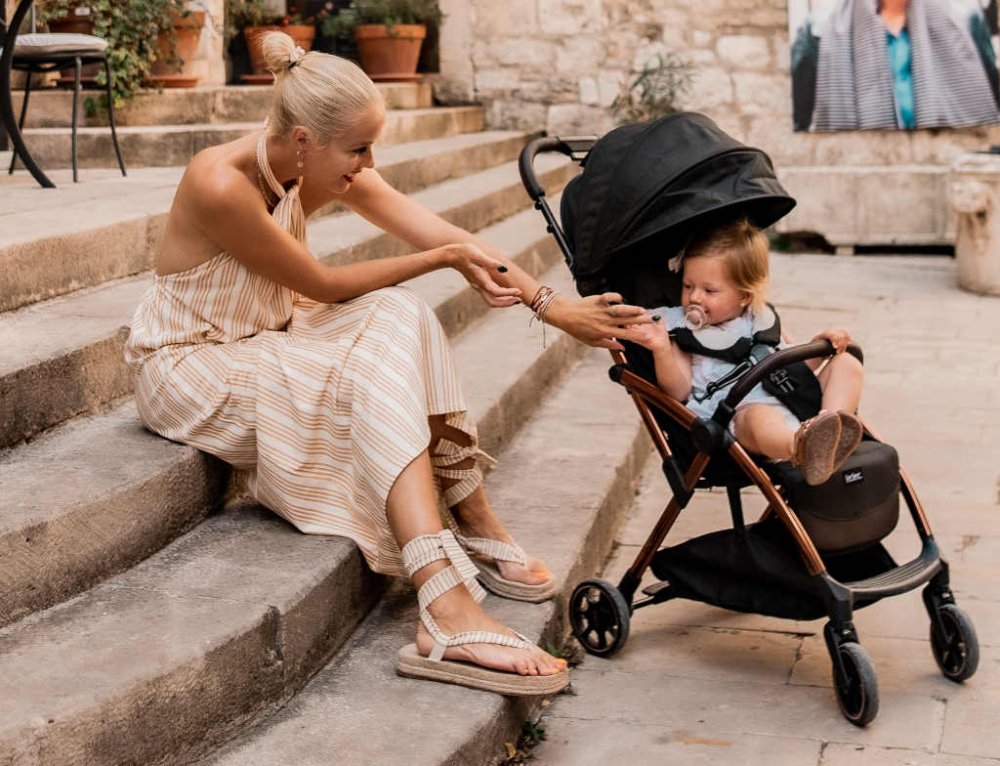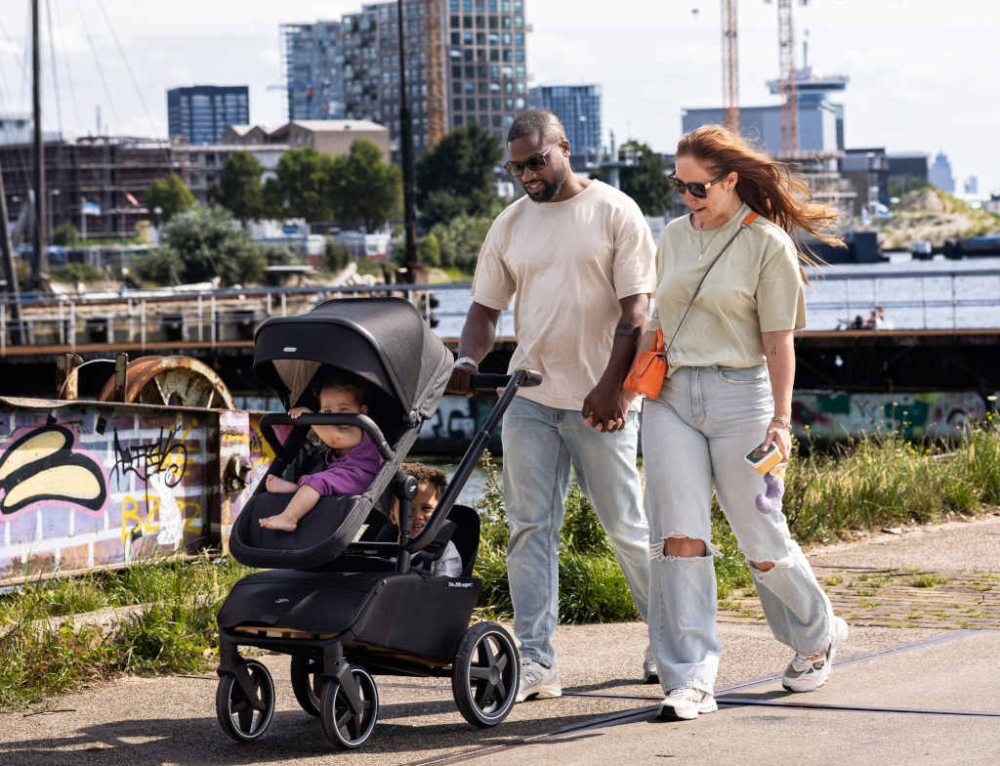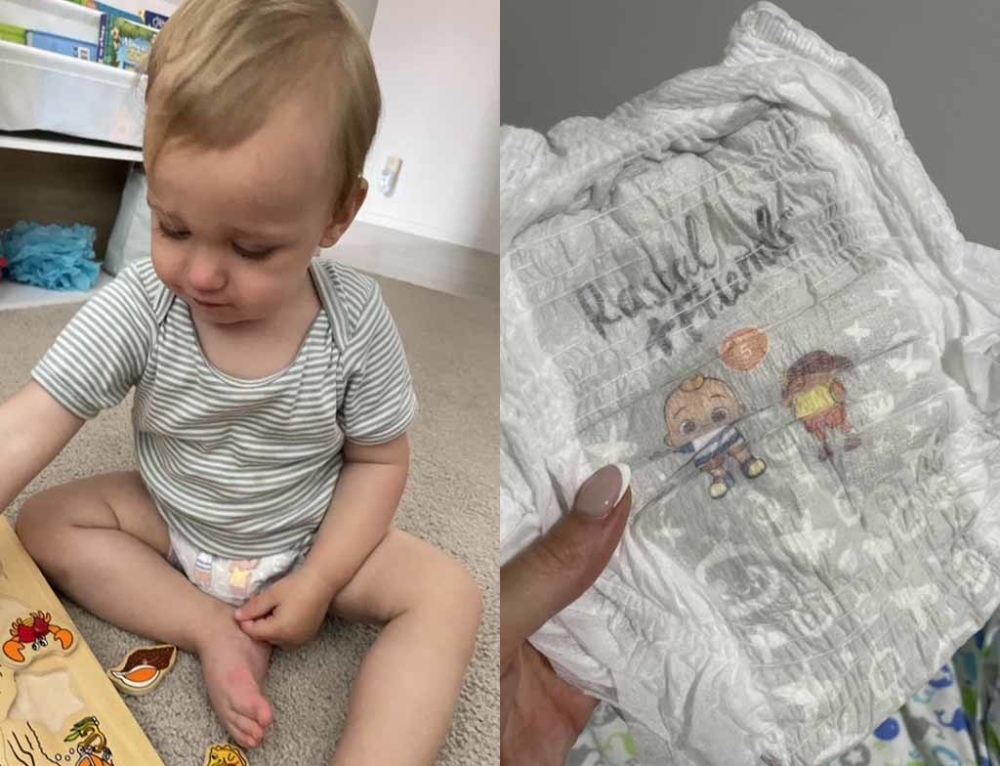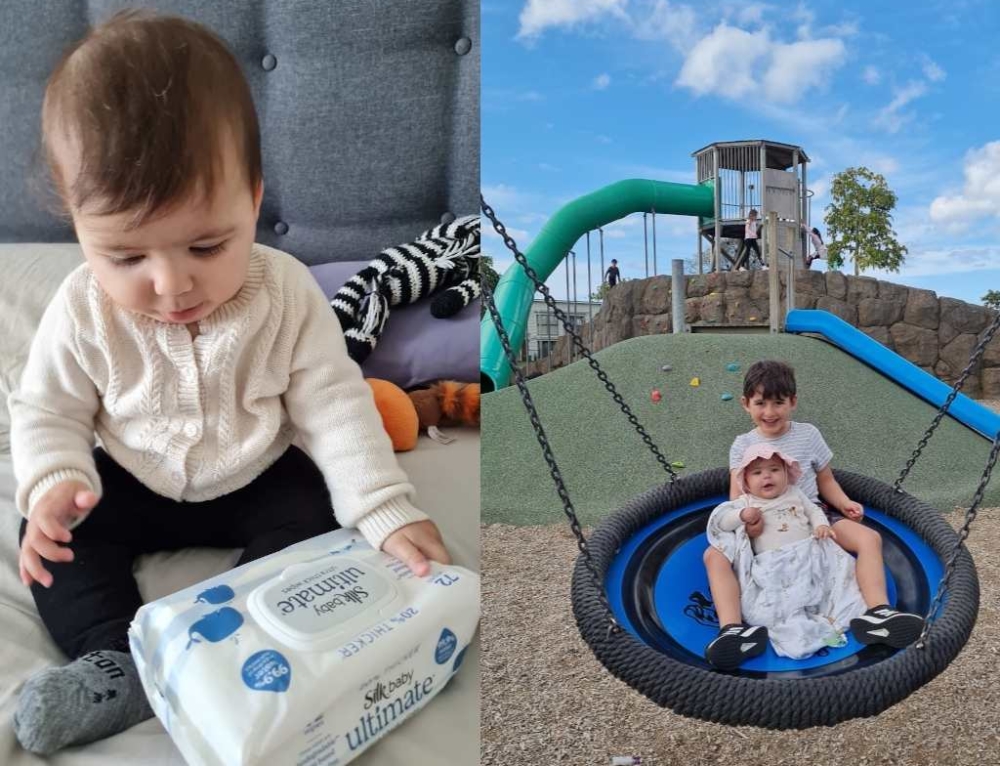Watching your baby, wondering what they will do next, is one of the great pleasures of parenthood. Discover more in our guide to developmental milestones for newborns.
One thing that may take you by surprise about parenthood is the amount of time you can spend simply watching your baby. Hours can disappear in the blink of an eye as you drink in their every move, watching for that first smile, first laugh, first acknowledgement that you exist beyond feeding and sleeping.
This general outline will give you an idea of what to expect (and all babies are different) in the first three months, but for more detail, sign up to receive Kidspot’s guide to your Baby’s First Year , a month-by-month guide on what to expect.
Week one
At this point, your baby is still becoming acclimatized to their brand new environment – with sounds, sights and smells completely foreign, and at times, utterly overwhelming. You’ll notice that while baby might not sleep for large chunks of time, those tiny eyes tend to flutter closed more than they’re open. Video footage might be a bit of a yawn fest, but give them a break – baby’s only been here a couple of days. The first week, your baby will probably:
- Focus on objects only within 15-30cm of their face, so snuggle up close
- Be able to move both arms and legs equally
- Briefly lift their head during supervised tummy time, working those tiny neck and back muscles
Week two
Week two isn’t much different from week one, except you might notice baby is slightly more alert than during the snooze-fest of week one. While you might have a desire to keep your baby entertained, he’s plenty busy making sense of their strange environment or taking another nap. There are, however, some activities you could try together this week.
Play
- Use your face – Since babies can only focus on objects 15-30cm away, your face makes the perfect object to study – and, really, the only thing they’ll want to look at.
- Black and white – Babies can only see strong contrasting colors at this point, so black and white toys and mobiles will be the most stimulating for him.
- Tummy time – Once upon a time, babies were put to sleep on their stomachs. While this tends to be the most natural and comfortable way for many babies to sleep, it’s also the riskiest when dealing with SIDS. We now know that it’s safer for babies to sleep on their backs, but there is a minor drawback: Babies spend much less time developing their back and arm muscles than they did when the majority of their day was spent lying on their stomachs. Also, too much time on baby’s back can cause a flat spot in the skull. Because of this, it’s important to spend about 10 minutes a day supervising him while baby lies on their tummy.
- Story time – Okay, so he probably can’t even focus on the book in your hand, but it’s never too early to make a habit out of reading. And it’s soothing for him to hear your voice.
Weeks 3-4
As your baby wraps up this first month, you might notice they are more alert than back in week one – possibly even flashing that first real smile, not just gas. Other than that, your baby will probably:
- Continue to focus on objects within 15-30cm of their face
- Be able to move both arms and legs equally
- Lift head a little further during supervised tummy time, working those tiny neck and back muscles.
- Baby also might start cooing (not just crying) and holding his or her head steady when upright.
Play
Activities that you started in week two can be continued. You’ll still feel like you’re reading The Gruffalo to yourself, but what the heck!
Weeks 5-8
You’ll notice that your newborn is more alert with every week that passes, and this coming month you’ll probably see the sweetest sight: a smile! Other developments this month might include:
- Cooing, possibly with vowel-consonant combinations like “ah-goo”
- Lifting head 45 degrees while on stomach
- Holding head steady when held upright
- Reaching for objects
- Looking to see where noises are coming from, showing you that they are more aware of surroundings
- A bit more mobility, rolling one-way from back to belly. Of course your baby isn’t quite on the move yet, but be extra careful not to turn your back during a nappy change
- More co-ordinated movements, as the month progresses. Those jerks will soon smooth out to purposeful motions.
- A first laugh (or squeal) possibly. But remember, every baby develops differently.
Play
Your baby is starting to recognise voices and be more responsive, and although he won’t be able to roll a ball or even laugh at a joke, playtime is an important part of their development:
Talk
Some parents are more comfortable with “baby talk” – you know, high pitched squeals and gibber-jabber – but the truth is, it doesn’t matter how you talk to a baby at this age, just that you do it. Tell them about your day; narrate what you’re doing; explain your political positions. Getting them used to hearing your voice and the language in general will be beneficial and mesmerising no matter what you’re actually saying. And remember – it’s not only what you say, it’s how you say it. Exaggerated smiles and sing-song voices always help to keep the baby’s attention.
- Ask questions and wait for a response – Make your baby feel included in the conversation, even though they don’t understand a word. When you hear a coo or a gurgle, listen and then respond. Studies show babies learn more when they’re being talked with, not at.
- Skip the pronouns – You have a long way to go before your baby starts talking back, but it’s never too early to get them used to hearing familiar words. “Mummy” and “Daddy” are more recognisable than “I” or “him,” so try and be conscious of the words you’re using.
- Copy your baby – When you hear your baby say, “ahh-goo”, repeat “ahh-goo”. Make a game out of copying their little gurgles, so eventually baby will start imitating your language.
- Sing – Even if you can’t carry a tune, just the sound of a song is always a sure-fire hit. It’s a fun, melodic way to introduce the language.
- Read – It’s never too early to instill a love of literature. A good way to integrate reading into your everyday routine is right before bedtime.
- Tummy time – It remains important that you set aside time for the baby to play on their tummy. Since babies are spending less time on their tummies (now that experts agree they should sleep on their backs), they need to build up their muscles during play time.
- Play airplane – By the end of the month, your baby might have more control over their body, making play time a little more adventurous. While sitting up with your knees bent, put baby tummy-down on your shins and carefully lay down on the floor. Bounce your legs up and down, taking your baby for a ride. (Wait until your baby has good control over his or her neck and always be gentle.)
Week 12+
Although every baby develops at a different rate, here are some general milestones you might be noting:
- Smiling and laughing
- Better head control, possibly even lifting up 90 degrees while on his or her stomach.
- Arm waving and leg pumping, especially when the baby sees you walk into the room
- More attentiveness and focus. You might even notice the baby following an object or person moving across the room
- Rolling over one way
- More leg strength, possibly even holding his or her weight when held upright
- Reaching and swatting, which helps to develop hand-eye coordination.
- Play – The more strength and body control your baby develops, the more fun playtime can be. But as always, playing is more about learning and developing than anything else.
- Be more vocal – You’ll notice your baby starting to explore more sounds with his or her voice, so keep up the chatting, singing and reading, using simple, familiar words. Continue to include the baby in your conversations by asking questions and responding to the gurgles and babbles.
- Make him laugh – There’s nothing better than an unexpected belly laugh, and you’ll find yourself going to silly extremes as your baby’s humour develops. Funny faces, hand gestures and singsong melodies are sure to amuse your little one at this point.
- Play the copy cat game – Start a game out of imitation by copying the little noises your baby makes, hopefully laying the groundwork for him to start imitating your language.
- Tummy time – It’s important to continue ten minutes of tummy time daily, to help develop baby’s head and neck muscles. As baby develops more head control, tummy time will seem less torturous.
- Play mats and gyms – Now is the perfect time to introduce your baby to a play mat or baby gym that has dangling toys so they can practice swatting. Believe it or not, hitting, grabbing and batting are all major milestones, indicating hand-eye coordination.
- Be a little more adventurous – More head control means less careful, delicate motions. While you still shouldn’t be too rough with an infant, most babies can handle – and enjoy – activities like bouncing on your lap, dancing in your arms and playing airplane on your legs. As always, be gentle and careful, but also add some excitement to your little one’s life.
This article was written for Kidspot, New Zealand’s leading parenting resource.
Every baby is different and will develop skills at different times. What differences did you notice between these milestones and your baby’s development, or between your own children’s development?
See more:







Reading this article made me reminisce the time when my now 4 year old son went through it. Our family is praying for our second one and I would like to look back at this milestones and cherish each and every step of it.
I miss those days. It was so easy to get a giggle from stories and things. I loved going to Space group and mainly music. Tummy time was always hard fought for on days at home. But at play groups they’d do tummy time together and love it!
Tummy time was so important for my son to develop his strength. Music and reading are also good and easily accessible for parents, you don’t need all the fancy toys for your child’s development.
Oh I miss the newborn and baby stages! Would so love to do it all again (yep must be mad, I’m 47 and should be a grandma not a mum again LOL). I would love to have another baby But I remember the milestones and all the chatting and faces and awesome stuff that made us laugh and cry, so cool.
But I remember the milestones and all the chatting and faces and awesome stuff that made us laugh and cry, so cool.